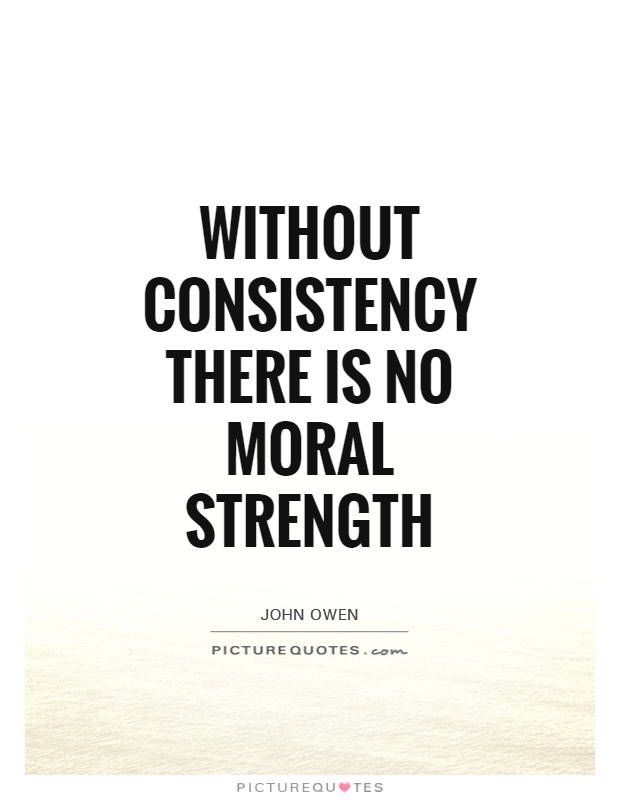Without consistency there is no moral strength

Without consistency there is no moral strength
John Owen, a prominent theologian and pastor in 17th century England, believed that consistency was essential for moral strength. He argued that without consistency in one's beliefs and actions, a person's moral character would be weak and easily swayed by external influences. Owen's teachings on the importance of consistency have had a lasting impact on Christian ethics and continue to be relevant in today's society.Owen believed that consistency was a reflection of one's inner convictions and values. He argued that a person who is consistent in their beliefs and actions demonstrates a strong moral character and integrity. In his writings, Owen emphasized the importance of aligning one's beliefs with their actions, and living a life that is true to one's values.
Owen's teachings on consistency can be seen in his emphasis on the importance of living a life of integrity and honesty. He believed that a person who is consistent in their actions demonstrates a commitment to truth and righteousness. By living a life of consistency, one can build a strong moral foundation that will guide them in making ethical decisions and facing moral challenges.
Owen also believed that consistency was essential for maintaining one's moral strength in the face of adversity. He argued that a person who is consistent in their beliefs and actions is better equipped to withstand external pressures and temptations. By remaining steadfast in their convictions, a person can resist the influence of others and stay true to their moral principles.
In today's society, the importance of consistency in moral strength is still relevant. In a world where moral values are often challenged and compromised, it is more important than ever to uphold principles of integrity and honesty. By living a life of consistency, individuals can build a strong moral foundation that will guide them in making ethical decisions and facing moral challenges.












 Friendship Quotes
Friendship Quotes Love Quotes
Love Quotes Life Quotes
Life Quotes Funny Quotes
Funny Quotes Motivational Quotes
Motivational Quotes Inspirational Quotes
Inspirational Quotes